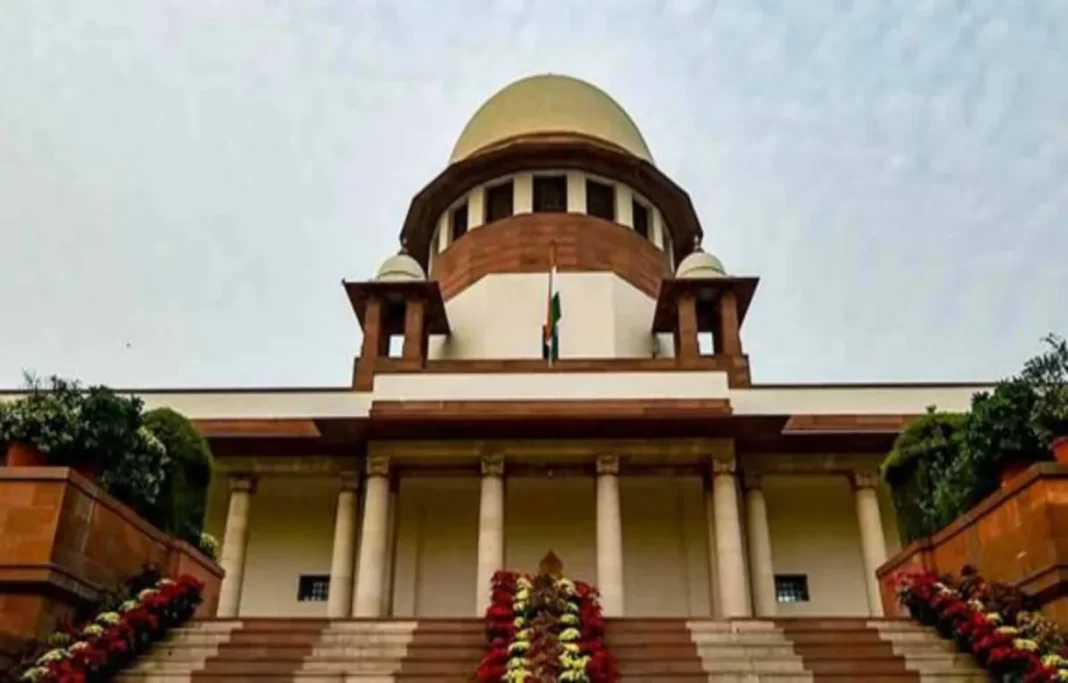The Supreme Court on Tuesday pulled up states, Union Territories for not filing affidavits furnishing data on jail infrastructures, despite court directions. The apex court was hearing a matter pertaining to overcrowding in Indian prisons.
The bench comprising Justice Hima Kohli and Justice Ahsanuddin Amanullah gave 2 weeks time to the Chief Secretaries of the concerned States/UTs, stressing that the affidavits shall mention the manner in which recommendations given by the respective Committees are proposed to be implemented and the timelines for such implementation.
During the outset of the hearing, Justice Amanullah asked Senior Advocate Gaurav Aggarwal, who is acting as Amicus in the matter, whether the Chief Secretaries of States/UTs have filed their affidavits in terms of earlier directions. Responding, the Amicus told that all except Delhi had filed. The Amicus explained that the file had to be sent to Delhi Chief Minister Arvind Kejriwal for approval, who is currently in judicial custody over the liquor policy case.
When Justice Kohli questioned as to who was appearing for Delhi, Additional Solicitor General Aishwarya Bhati appeared on Video Conferencing to say that she had been instructed on behalf of the UT. The ASG contended that they are in a peculiar situation and requested the bench to give them some more time.
Meanwhile, the ASG also stated that though Delhi has 11 administrative districts, it has only 3 prisons. She added that there is a proposal to have a common Committee look at the infrastructure. If the court permits the said Committee to examine, the UT would be able to file a report within 2 weeks, she continued.
Subsequently, the court proceeded to consider the case of other states, namely Bihar, Uttar Pradesh, Punjab and Chhattisgarh with respect to which the Amicus had collated data and filed a note, pursuant to the court asking him last week what could be done on immediate basis.
Consecutively, the selection of the aforesaid 4 states was explained by the Amicus by saying that these states have over 120-130 jails, where the problem appears to be the highest. He also remarked that the data collected was an eye-opener for the governments.
Underlining that there was nothing adversarial about the case, Justice Kohli expressed to the Amicus that nothing could be more important than the fact that, maybe a person’s right to moving around freely is curtailed but doesn’t mean he/she has to stay in a place which is so dingy, so difficult, so crowded, in such conditions that the person goes out more ill, adding that it is not the idea of punishment.
Considering the submission of the counsels, Justice Kohli pronounced the order. The court granted 2 weeks time to the Amicus to prepare and file a note after perusing the affidavits received by him from 6 other states, namely Andhra Pradesh, Haryana, Maharashtra, Orissa, West Bengal and Madhya Pradesh.
Furthermore, reports/affidavits by the 9 states of Telangana, Kerala, Karnataka, Jharkhand, Rajasthan, Himachal Pradesh, Assam, Tamil Nadu and Gujarat were ordered to be filed within 2 weeks, with advance copies to the Amicus, if not already filed. The court stated that the reports shall be sworn by the respective Chief Secretaries and that they shall not only collate absence of facilities and recommendations of the Committees on them, but also the action proposed to be taken in a fixed timeline to address the issues raised.
Referring to Sikkim, Manipur, Goa, Mizoram, Andaman and Nicobar, Meghalaya, Ladakh, Nagaland and Tripura, as it was informed that prison population of the States/UTs was not very large, the top court directed that whatever recommendations were made by the Committees shall be examined by the respective Chief Secretaries and affidavits filed laying down the timeline within which they would be implemented.
Highlighting that in some districts, the District Magistrates and Superintendence of Police did not participate in deliberations despite court directions, the court ordered all members who have been appointed to the Committees to participate.
For Bihar, UP, Punjab and Chhattisgarh, the Chief Secretaries were directed to file affidavits within 2 weeks providing the milestones within which the recommendations of the Committees shall be implemented, along with relevant data.
Ultimately, it was clarified that wherever reports are awaited, or have been received but implementation of recommendations has not been mentioned, Chief Secretaries shall file additional affidavits furnishing the manner in which the implementation shall be made and the milestones within which the action shall be taken. The matter is next scheduled on May 14.


